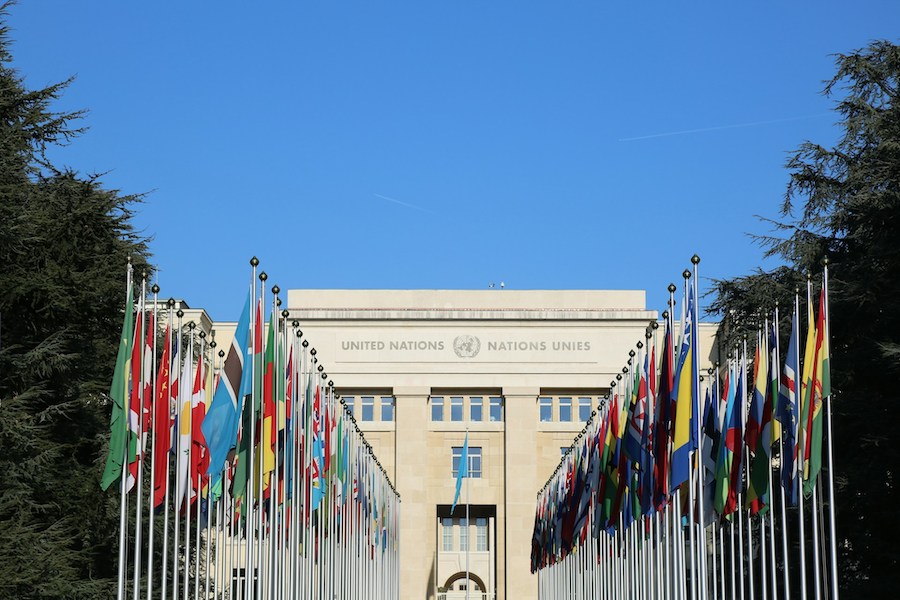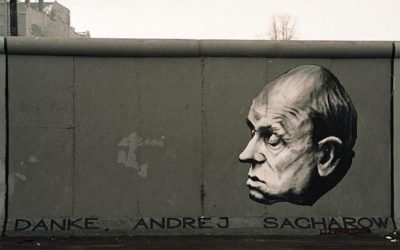Our response to the Russian Federation’s official response at the UN
Dmitry Dubrovsky
Photo: The Russian delegation to the UN’s official response to the questions of the Special Rapporteur on the right to education is a classic example of “responding without responding.” Photo by Salya T on Unsplash
Freedom Beyond Documents
Conversations about academic freedom often begin with a search for the right definition, and these searches lead immediately to discouraging results: there is no generally accepted, legally binding document that defines academic freedom.
At the same time, from a number of conventions and other stringent norms of international law, we can derive that:
- On the one hand, academic freedom is linked to freedom of speech
- On the other hand, it is protected as an integral part of the right to education
As a result, it turns out that part of academic freedom is what is called “negative freedom”—that is, something that requires guarantees of non-interference from the state (“freedom from”)
Meanwhile, part of academic freedom is the opposite—“positive freedom,” or “freedom to.”
In relation to the logic of protecting human rights, in the first case we expect the state to guarantee its non-interference (in particular, a ban on censorship, freedom of research, and freedom of the press).
In the second case, by contrast, we expect governmental action—guarantees involving access to education; funding for teachers, researchers, and students; etc.
Four Parts of Academic Freedom
Since there is no particular document outlining academic freedom (aside from the 1997 Recommendations on the Status of Teaching Staff in Higher Educational Institutions), this issue has historically rarely been discussed within the UN.
However, this has started to change.
Recently, Special Rapporteur on the Right to Education Farida Shaheed urged countries, organizations, and scientists to respond to a series of questions. The answers they gave formed the basis of the Report on Academic Freedom as It Relates to the Right to Education. The questions are as follows:
- How is academic freedom defined and protected under national law?
- How are the rights of teachers, researchers, students, and employees of scientific and educational institutions protected?
- What issues or deficits obstruct the protection of academic freedom?
- What are the specifics of protecting academic autonomy, especially in terms of the possible negative influence of a donor (state or non-state) on academic autonomy?
- What video surveillance or recording is practiced within your educational institutions?
These questions could be answered by individual organizations, countries, and researchers.
Shaheed proceeded from the basis that “academic freedom includes four interdependent pillars:
- the right to teach
- to engage in discussions and debates with persons and groups inside (including in classrooms) and outside the academic community
- to conduct research
- and to disseminate opinions and research results.”
Freedom in Russian Answers
Human rights researchers are well aware of authoritarian regimes’ common practice of “reporting” the alleged observance of human rights even though their country constantly violates them. All they need to do is list the official documents that govern certain human rights.
The question of the actual implementation of these laws in real situations never arises. It is assumed that if something is protected under the law, then that protection is implemented in full and without exceptions.
The Russian delegation’s official response at the UN to the Special Rapporteur’s questions is a classic example of this practice.
The response consists almost exclusively of extensive quotes from Russian legislation, including the 2002 Model Law on Higher Education and the latest version of the legislation “On Education in the Russian Federation,” which, in Part 1 of Article 47, contains a complete list of what Russian legislators consider to be components of academic rights and freedoms in Russia.
Note that many important points are missing from the rights listed, such as the right to disseminate research results.
Right to Participate in Management. The most serious issue here is the wording of “the right to participate in the management of an educational organization…in the manner established by the charter of this organization.”
The events of the past 15 years have demonstrated how this phrasing is interpreted in practice. Academic councils as a collegial body are increasingly being subordinated to their founders, such as the Ministry of Science and Higher Education. Their capabilities are seriously limited by university charters, which academic councils are unable to change.
Rights of Teachers. Nonetheless, professors at Russian higher educational institutions are given some guarantees of academic freedom. The official response does not elaborate on how these freedoms are actually protected or any legal disputes surrounding the issue.
Surprisingly, the official response does not even mention the rather clear dissenting opinion of Russian Constitutional Court Judge K. Aranovsky, who draws a direct link between the protection of academic autonomy and the academic rights of teachers.
There are virtually no other decisions from Russian courts that discuss issues of academic freedom—they handle disputes exclusively within the framework of labor law. The right to academic freedom itself is, as a rule, not invoked.
Rights of Students. The list of students’ rights is also borrowed from the Law on Education. The vast differences between students’ and teachers’ rights are immediately apparent.
The main rights cited are socio-economic. The issue of the “freedom to learn” is handled in the exact same way as the right of professors to participate in the management of the university. While the “freedom to learn” is often associated with the opportunity to select your own classes and professors, the lack of choice itself imposes boundaries on the academic “freedom to learn.”
The Law on Education asserts this freedom as “…the choice of optional and elective subjects, courses, disciplines (modules) from the list offered by the educational organization.” Often, however, students at Russian universities note that the list of elective courses is either very small or does not offer a choice at all, essentially resulting in additional mandatory courses.
Autonomy. The Russian government also has its own interpretation of the issue of the autonomy of educational institutions. According to the official response, Russian legislation “… guarantees freedom in determining the content of education, choosing educational technologies, and choosing educational and methodological support.”
Meanwhile, the actual work practices of the Ministry of Education and Science, as well as the Federal Service for Supervision in Education and Science, demonstrate that student freedoms—especially now, since the war—do not lie in the content of their education, which is now largely formulated by the Ministry itself. These freedoms are instead expressed in the forms of instructional activity and educational technology. In other words, academic autonomy, like academic rights and freedoms, has been restricted by administrative frameworks from the beginning.
“Ban” on Political Campaigning
It is specifically stipulated that, in the opinion of the authors of the official Russian response, “pedagogical workers are prohibited from using instructional activities for the purpose of political campaigning.”
The existence of this ban is simply baffling, considering that the pro-war campaigning, militaristic propaganda, and ideological courses that have been introduced throughout Russian universities are precisely the sorts of activities that, according to the official line, are prohibited.
Aside from that, among the activities that the official response considers it legal to restrict are: “providing false information to students about the historical, national, religious or cultural traditions of a people, as well as incitement to actions that run contrary to the Constitution of the Russian Federation.”
The last assurance the official response makes is that video surveillance in Russian educational institutions, which is officially justified by “counter-terrorist measures,” is allegedly done with the permission and knowledge of “all participants in the educational process.”
In some cases, lectures are recorded as part of special “administrative measures,” for example in instances of “anti-patriotism,” such as anti-war statements or other critical remarks.
Naturally, these formal guarantees do not paint an accurate picture of the state of academic rights and freedoms, particularly because they are violated constantly. Overall, the text contains little more than lengthy quotations from the Law on Education and is uninformative. Moreover, the official delegation declined to answer a number of questions at all.
Our Response to the Official Response
The Special Rapporteur also received a long and detailed response regarding the situation in Russia written by the author of this article in collaboration with Kasia Kaczmarska, a researcher from the University of Edinburgh.
Using research and legal documents, the response first draws attention to the fact that academic rights and freedoms are very poorly protected in Russia. Even protected rights are regularly violated, primarily by the leadership of Russian scientific and educational institutions.
This is to the particular detriment of both collegial forms of governance and institutions of academic ethics, which have turned into a repressive mechanism for punishing anti-war or opposition views.
As for the freedom to teach, we point out the serious problems associated with the ideological restructuring of Russian higher education. This has affected various disciplines, from human rights to Russian history, in which a “patriotic” version of the course is emerging.
Finally, the response draws attention to the laws “on foreign agents” and “on undesirable organizations.” Books and teaching aids published by “foreign agents” or with the assistance of “undesirable organizations” cannot be used in scientific and educational activities.
* * *
For Russia, in light of its withdrawal from the Council of Europe, UN structures are becoming a venue to formulate and discuss various issues related to human rights, with academic rights as an integral component thereof.
Publishing alternative opinions provides an opportunity to reasonably question the official statements of the Russian authorities regarding the situation of academic rights and freedoms within the country.





0 Comments